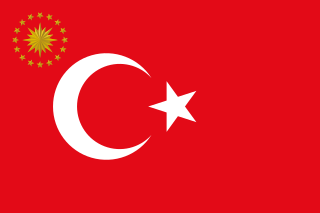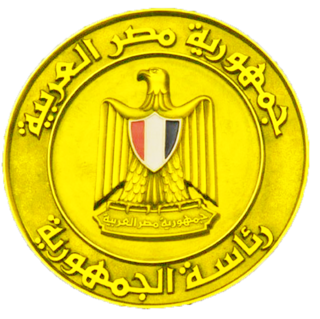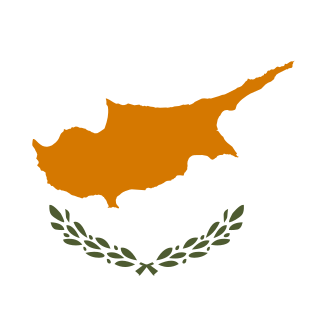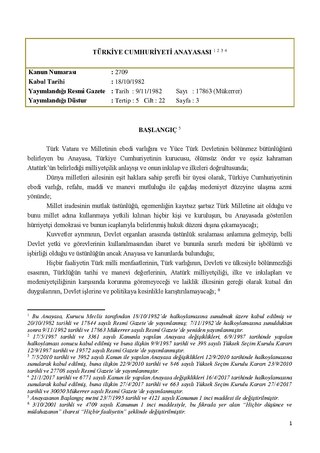
The politics of Armenia take place in the framework of the parliamentary representative democratic republic of Armenia, whereby the president of Armenia is the head of state and the prime minister of Armenia the head of government, and of a multi-party system. Executive power is exercised by the president and the Government. Legislative power is vested in both the Government and Parliament.

The politics of Turkey take place in the framework of a constitutional republic and presidential system, with various levels and branches of power.

The politics of Azerbaijan take place in an authoritarian system where elections are not free and fair, political opponents are repressed, civil rights are limited, human rights abuses are widespread, corruption is rampant, and power is concentrated in the hands of President Ilham Aliyev and his extended family.

A veto is a legal power to unilaterally stop an official action. In the most typical case, a president or monarch vetoes a bill to stop it from becoming law. In many countries, veto powers are established in the country's constitution. Veto powers are also found at other levels of government, such as in state, provincial or local government, and in international bodies.

The president of Turkey, officially the president of the Republic of Türkiye, is the head of state and head of government of Turkey. The president directs the executive branch of the national government and is the commander-in-chief of the Turkish military. The president also heads the National Security Council.

A presidential system, or single executive system, is a form of government in which a head of government, typically with the title of president, leads an executive branch that is separate from the legislative branch in systems that use separation of powers. This head of government is in most cases also the head of state. In a presidential system, the head of government is directly or indirectly elected by a group of citizens and is not responsible to the legislature, and the legislature cannot dismiss the president except in extraordinary cases. A presidential system contrasts with a parliamentary system, where the head of government comes to power by gaining the confidence of an elected legislature.

A commander-in-chief or supreme commander is the person who exercises supreme command and control over an armed force or a military branch. As a technical term, it refers to military competencies that reside in a country's executive leadership, a head of state, head of government, or other designated government official.

The president of South Africa is the head of state and head of government of the Republic of South Africa. The president directs the executive branch of the government and is the commander-in-chief of the South African National Defence Force. Between 1961 and 1994, the office of head of state was the state presidency.

A decree is a legal proclamation, usually issued by a head of state, judge, royal figure, or other relevant authorities, according to certain procedures. These procedures are usually defined by the constitution, Legislative laws, or customary laws of a government.

The president of the Arab Republic of Egypt is the executive head of state of Egypt and the de facto appointee of the official head of government under the Egyptian Constitution of 2014. Under the various iterations of the Constitution of Egypt following the Egyptian Revolution of 1952, the president is also the supreme commander of the Armed Forces, and head of the executive branch of the Egyptian government.

The current Constitution of France was adopted on 4 October 1958. It is typically called the Constitution of the Fifth Republic(French: la Constitution de la Cinquième République), and it replaced the Constitution of the Fourth Republic of 1946 with the exception of the preamble per a 1971 decision of the Constitutional Council. The current Constitution regards the separation of church and state, democracy, social welfare, and indivisibility as core principles of the French state.

The prime minister of Turkey, officially the prime minister of the Republic of Turkey, was the head of government of the Republic of Turkey from 1920 to 2018, who led a political coalition in the Turkish Parliament and presided over the cabinet. Throughout the political history of Turkey, functions and powers of the post have changed occasionally. Prior to its dissolution as a result of the 2017 Constitutional Referendum, the holder of the premiership was generally the dominant figure in Turkish politics, outweighing the president.

The President of Cyprus, officially the President of the Republic of Cyprus, is the head of state and the head of government of Cyprus, as well as the commander-in-chief of the Cypriot National Guard. The office was established by the Constitution of 1960, after Cyprus gained its independence from the United Kingdom.

The Government of Pakistan, constitutionally known as the Federal Government, commonly known as the Centre, is the national authority of the Islamic Republic of Pakistan, a federal republic located in South Asia, consisting of four provinces and one federal territory. The territories of Gilgit-Baltistan and Azad Kashmir are also part of the country but have separate systems and are not part of the federation.
The unitary executive theory is "an expansive interpretation of presidential power that aims to centralize greater control over the government in the White House."

The Government of Turkey is the national government of Turkey. It is governed as a unitary state under a presidential representative democracy and a constitutional republic within a pluriform multi-party system. The term government can mean either the collective set of institutions or specifically the Cabinet.

The Constitution of Armenia was adopted by a nationwide Armenian referendum on July 5, 1995. This constitution established Armenia as a democratic, sovereign, social, and constitutional state. Yerevan is defined as the state's capital. Power is vested in its citizens, who exercise it directly through the election of government representatives. Decisions related to changes in constitutional status or to an alteration of borders are subject to a vote of the citizens of Armenia exercised in a referendum. There are 117 articles in the 1995 constitution. On November 27, 2005, a nationwide constitutional referendum was held and an amended constitution was adopted. The constitution was amended again in a national referendum on December 6, 2015 that changed the political structure from a semi-presidential system to a parliamentary republic.

The Constitution of Turkey, formally known as the Constitution of the Republic of Türkiye, also known as the Constitution of 1982, is Turkey's fundamental law. It establishes the organization of the government, and sets out the principles and rules of the state's conduct along with its responsibilities in regards to its citizens. The constitution also establishes the rights and responsibilities of the latter while setting the guidelines for the delegation and exercise that sovereignty belongs entirely and without doubt to the people.

The Separation of powers in Singapore is governed by Constitution of the Republic of Singapore, which splits the power to govern the country between three branches of government – the parliament, which makes laws; the executive, which executes them; and the judiciary, which enforces them. Each branch, while wielding legitimate power and being protected from external influences, is subject to a system of checks and balances by the other branches to prevent abuse of power. This Westminster constitutional model was inherited from the British during Singapore's colonial years.

















